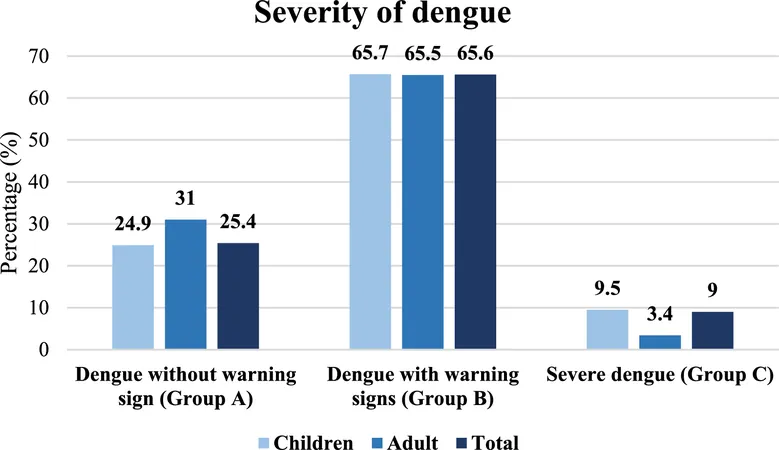
Entry-Level Job Requirements Skyrocket as Employers Seek Experience: Are Recent Graduates Being Set Up for Failure?
2025-03-28
Author: Arjun
INTERNATIONAL:
A troubling trend is emerging in the job market as employers across the globe increasingly expect new graduates to have two to five years of experience for entry-level positions. This alarming shift has been highlighted in a recent report by Deloitte, indicating that a staggering 61% of employers have raised their experience expectations in just the past three years. This trend reflects the widening skills gap that many businesses are struggling to navigate, leaving new graduates in a frustrating bind.
The Expanding Experience Gap
According to Deloitte's latest 2025 Global Human Capital Trends report, employers are finding it increasingly challenging to fill roles with candidates who meet their experience criteria. An overwhelming two-thirds of managers and executives reported that recent hires often lack the requisite experience, marking this as a substantial barrier to effective recruitment. The report designates the "experience gap" as a pressing issue that now surpasses the skills gap, posing significant challenges for businesses.
The paradox faced by job seekers today is stark: graduates are unable to secure jobs without prior experience, yet they cannot gain that experience without being employed. This cyclical dilemma leaves both job seekers and employers striving for effective solutions.
Redefining Experience: A New Perspective
Deloitte’s insights suggest that the conventional definition of “experience”—measured merely by the duration spent in specific positions—no longer suffices for today’s competitive workplace demands. Instead, employers are seeking candidates who can not only execute tasks but also adeptly apply their skills in real-world scenarios, manage stress effectively, and navigate complex problems. Essential soft skills including curiosity, emotional intelligence, and problem-solving capabilities have taken on equal importance alongside traditional technical skills.
This evolving definition of experience necessitates a transformation in hiring practices. Organizations are urged to look beyond mere years of service to evaluate a candidate's adaptability, decision-making prowess, and ability to deliver results across a variety of situations.
Strategies to Bridge the Experience Gap
To combat the burgeoning experience gap, companies must adopt proactive measures that promote experiential learning opportunities. Both employees and leaders agree that organizations have a responsibility to create environments conducive to learning and skill development.
Deloitte recommends that companies consider redesigning positions to facilitate quicker experiential learning, particularly through practical training that develops critical decision-making skills over time. Additionally, firms are encouraged to broaden their recruiting horizons by identifying individuals with unconventional experiences that may be relevant.
Some effective strategies to address the experience gap include:
- Rethinking the emphasis on traditional work experience and formal qualifications in hiring practices.
- Reviewing recruitment algorithms to ensure they accommodate candidates from diverse backgrounds.
- Expanding internship and apprenticeship offerings to enhance hands-on learning experiences.
- Collaborating with educational institutions to foster pathways that integrate theoretical insights with practical application.
By embracing these strategies, organizations can cultivate a more diverse, skilled workforce while simultaneously addressing the significant experience gap that many are currently facing, thus ensuring a more sustainable future for both employers and employees.
This evolving landscape of employment reveals a pressing need for innovation in hiring practices that support the development of new talent while bridging the gap that is currently disadvantaging many aspiring professionals.



 Brasil (PT)
Brasil (PT)
 Canada (EN)
Canada (EN)
 Chile (ES)
Chile (ES)
 Česko (CS)
Česko (CS)
 대한민국 (KO)
대한민국 (KO)
 España (ES)
España (ES)
 France (FR)
France (FR)
 Hong Kong (EN)
Hong Kong (EN)
 Italia (IT)
Italia (IT)
 日本 (JA)
日本 (JA)
 Magyarország (HU)
Magyarország (HU)
 Norge (NO)
Norge (NO)
 Polska (PL)
Polska (PL)
 Schweiz (DE)
Schweiz (DE)
 Singapore (EN)
Singapore (EN)
 Sverige (SV)
Sverige (SV)
 Suomi (FI)
Suomi (FI)
 Türkiye (TR)
Türkiye (TR)
 الإمارات العربية المتحدة (AR)
الإمارات العربية المتحدة (AR)